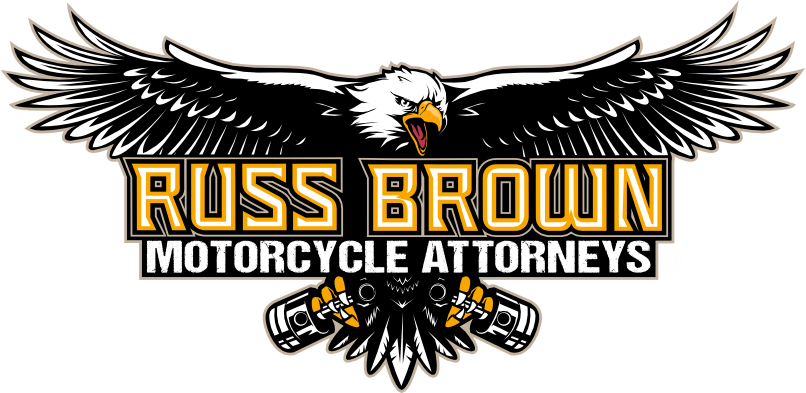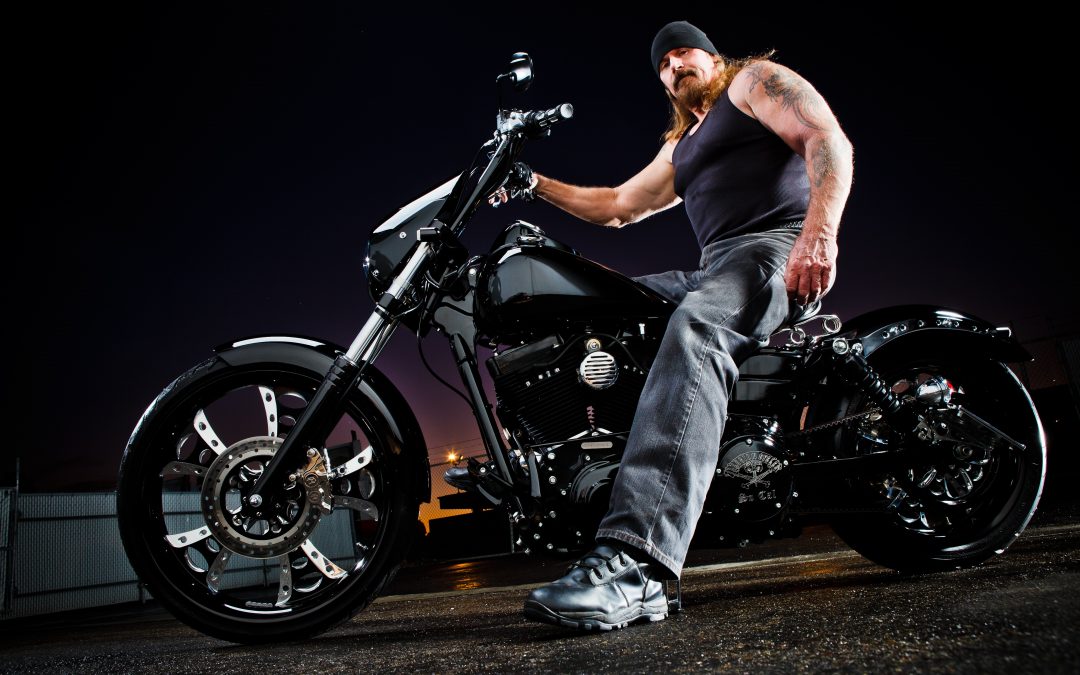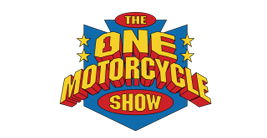Motorcycling is usually viewed as a hobby or a sport, and sometimes a lifestyle, but for people like Rusty Coones it might be best described as a calling. Growing up on dirt bikes in Madera, California is pretty common, but for Rusty it led to customizing Harley’s and muscle cars, eventually leading him to the 1%er life.
Far from being a one-dimensional person though, Rusty has found himself at the center of many endeavors, including being on stage and on camera. His most recent band, Attika 7, has released two albums and performed for huge crowds, but Rusty might be best known to the general public for playing Rane Quinn on the TV series Sons of Anarchy. Most don’t know, however, that it was not Rusty’s first time in film.

What’s perhaps the most impressive though is that Rusty managed to do all this while running a high-performance motorcycle shop and being an influential member in one of the most well-known motorcycle clubs in the world. Juggling that many things can lead anyone to burn out, but after talking with Rusty, we found he is still coming up with new ideas he wants to get involved with.
How has it been watching the scene evolve for decades? How does he manage so many businesses and such a multi-faceted career? What’s driving him? These were only some of the questions we wanted to ask Rusty, so when he gave us a few hours of his time we decided to start at the beginning:
RBMA: So what got you into bikes, like, what are your earliest memories? You know, was it family, or did you get into it on your own? What do you remember first, starting out?
RC: When I was a young kid, I lived in Madera, California. That’s in Central California in the valley. My dad owned a crop-dusting business. We were in a rural area and lived about three miles from the airport, so I was out there all the time as a kid, and he taught me a lot of stuff about mechanics and fabrication, on airplanes and all that, at a young age.
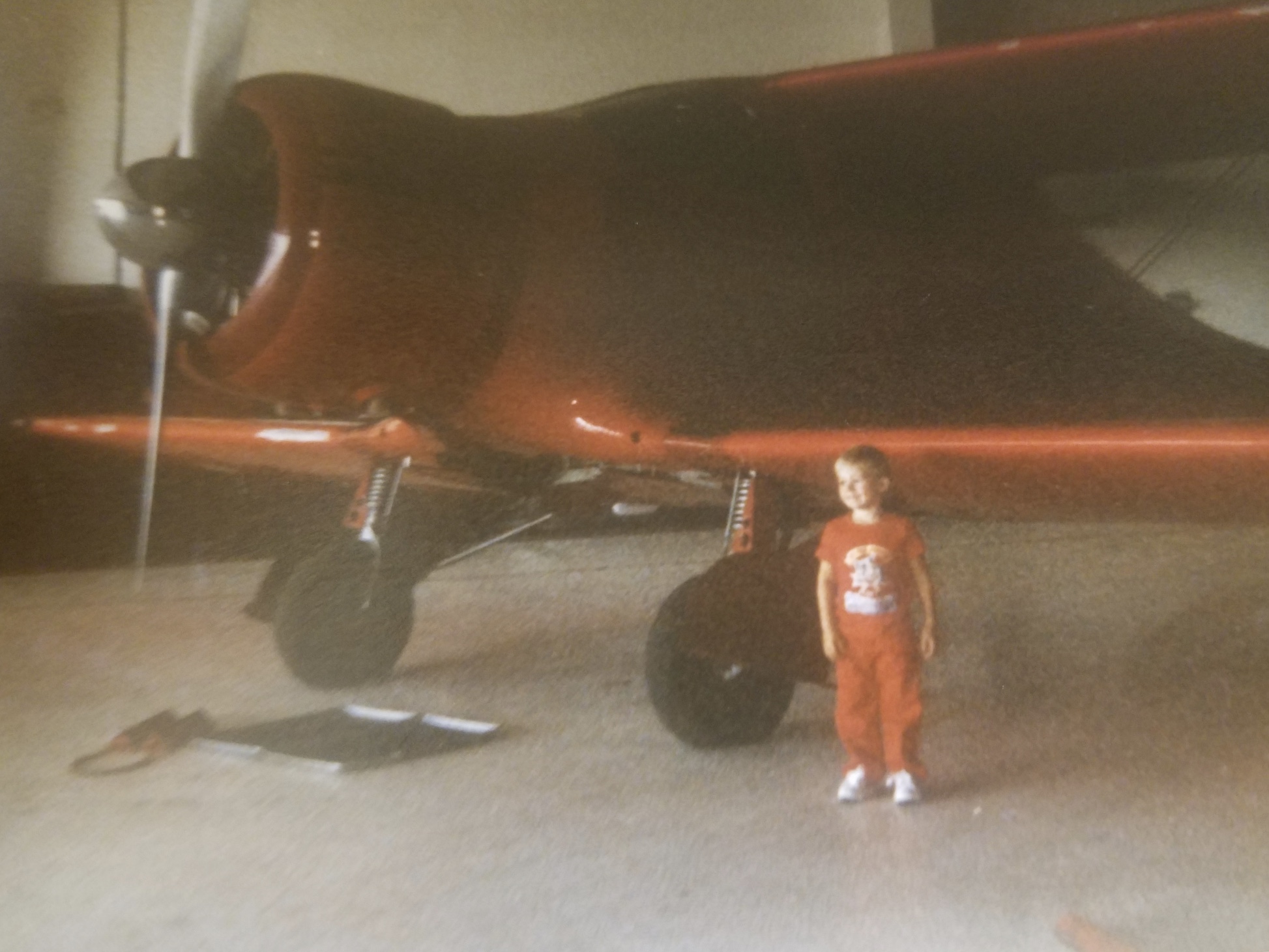
We had a lot of room out there, and we’d have go-karts and mini bikes. And then as I got a little bit older as a teenager, I got into motorcycles. Then I got into racing motocross… all that before I had a driver’s license.
At about 15.5 [years old] I got my permit, and in California back then, that allowed you to ride motorcycles. I started riding on the street […] and at that time there were a lot of vintage cars around. You could pick them up real cheap, so I had some really cool cars.
Then when I was about 19, I got my first Harley, a chopped Knucklehead, a 1941. That bike was considered an expensive and real nice bike at the time, and it was only $2,000. Those things nowadays are worth thirty to a hundred thousand dollars!

RBMA: So nowadays, what are you riding?
RC: I’m riding a couple of bikes. I’ve got a Victory that I stripped down and I cut the frame. I put a 26 [inch wheel] on the front. It’s a bagger. And I actually didn’t like the way it looked, the design of it. So I mean, it looks like a Harley Road Glide. I put a supercharger system on it, and It’s slammed on the ground, air suspension, and all that stuff. It’s got about 171 horsepower… about 153 going to the rear wheel. It’s all blacked out, and it’s a cool bike.

And then the other thing I’m riding, which is my daily rider, is a BMW Bagger, one of the black ones that came out in 2018… the 1600… the K1600B. They had a governor on them of about 130mph, and about 160 horsepower stock. But once you get to 130[mph] it’s not gonna go any faster. So, I got the tuner for it and put some programming into it that’s pretty good.
It’s got about 170 horsepower now, and all those limiters are gone. It’s pretty fast. I mean, it’s a bagger: it’s not like a Hayabusa, but it’s fast. And I’ve been over 150[mph] on it a few times, and it cruises really smooth. You can adjust the windshield where you want it for less buffeting. […] It doesn’t look as cool as a Harley, but when you ride it, it’s an unbelievable bike to ride.
RBMA: Wow, I wasn’t expecting to hear BMW, but I’ve owned a few and yeah, they’re pretty nice.
RC: Yeah, there’s a few people riding them in our [group], but, yeah, I remember I was coming back from Arizona one time and I stopped at a Denny’s. There was this guy that’s way older than me who comes up, and he said, ‘I can’t believe it, a Hell’s Angel riding a BMW’ [laughs]. I said, ‘well if you rode this, you’d understand why. This thing is really nice.’
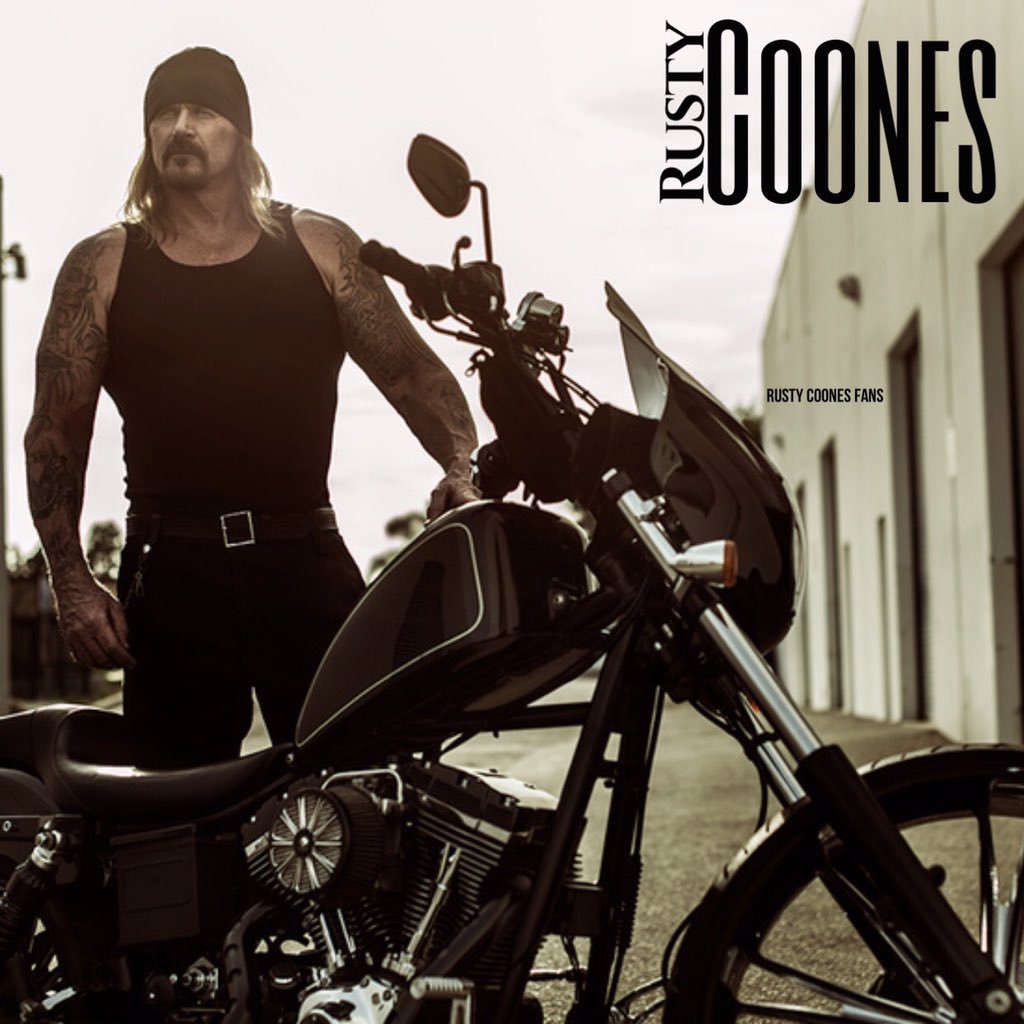
Whether show bikes or go bikes, Rusty has an interest in machines that serve a purpose.
It shouldn’t be a surprise that Rusty rides more than just Harley’s though. Take for example Illusion Motorsports, his custom shop. Not only does he build custom bikes, but three and four-wheeled customs as well. Rusty’s commitment is to performance, and he is ready to hot rod anything with an engine: even if it’s battery-powered:
RC: You know what I see happening? In the future here, a lot of things are going electric. The batteries are getting better and better, and cheaper and cheaper every year. They’ve been developing electric motorcycles, but they don’t have the range that they need to have yet. And the charging is… it usually takes a little bit too long to make it practical to go cross-country, you know?
Alright, but a lot of those hurdles are being overcome, and whether people like to hear it or not, it’s coming. And with government regulation and a lot of other things that are happening, they’re gonna kind of ram it down people’s throats on top of that.

So what you have to do is you gotta keep an open mind, because it’s gonna be there whether you like it or not. And there will be performance aspects of it too, on the good side, that are incredible. I mean, the power you can put to the ground without a gearbox is unmatched by conventional motors. We have to use gearboxes [with combustion engines] for torque multiplication, but [electric motors] get 85% of their power from zero RPM, so if they get their battery packs down small enough, and the range up, you’re gonna see in the future some real superbikes.
You’ve already got supercars out there. I mean, there’s the Tesla Plaid model coming out this year. It’s the highest level of performance. It’s right around 100 grand, I think somewhere in there, but it does 0-to-60 in 1.99 seconds.
RBMA: Yeah, that’s a Formula 1 car level.
RC: Yeah, and it does 200mph right out of the box. Four-wheel drive, three motors, in the Plaid Plus. It has 1100HP right out of the box.
RBMA: Yeah, I just saw something recently about Honda sharing a patent for a removable battery. You can just flip the seat up and yank it out, put a new one in. I mean, Honda dealerships aren’t as numerous as gas stations, so you’re still gonna have to plan ahead, but back in the day people would ride with their peanut tanks– they could only go like 60 miles, so they had to plan ahead too.
RC: [Laughs] Yeah I remember that. You know, even before everybody went to [fuel] injection, I had a Dyna with a carburetor, and the mileage is horrible compared [to fuel injection]. Going to Sturgis or something with a four-gallon– it had a stretched Sportster tank, which actually held over four gallons– I could only get 80 miles out of the darn thing you know… it was just guzzling gas. When you’re out there on the open road with the headwinds and stuff I mean, it will really suck the gas.
On a bike like that, if you’re riding in a pack of motorcycles, you don’t wanna be the guy in the front because you’re taking the beating. You wanna be back like, second or third back because you can actually draft and save a lot of gas.
RBMA: I’ll be damned, I never even thought of that.
RC: Yeah, just try it sometime. If you’re in a pack of bikes, if you’re in the lead, you’re taking the brunt of the wind and all that, right? But if you’re back behind at least one person or two you’re drafting just like the stock car racers, they do the same thing. Just be careful. Don’t be in a situation where the guy in front of you has to hit the brakes because of radar or something. I’ve had that happen.
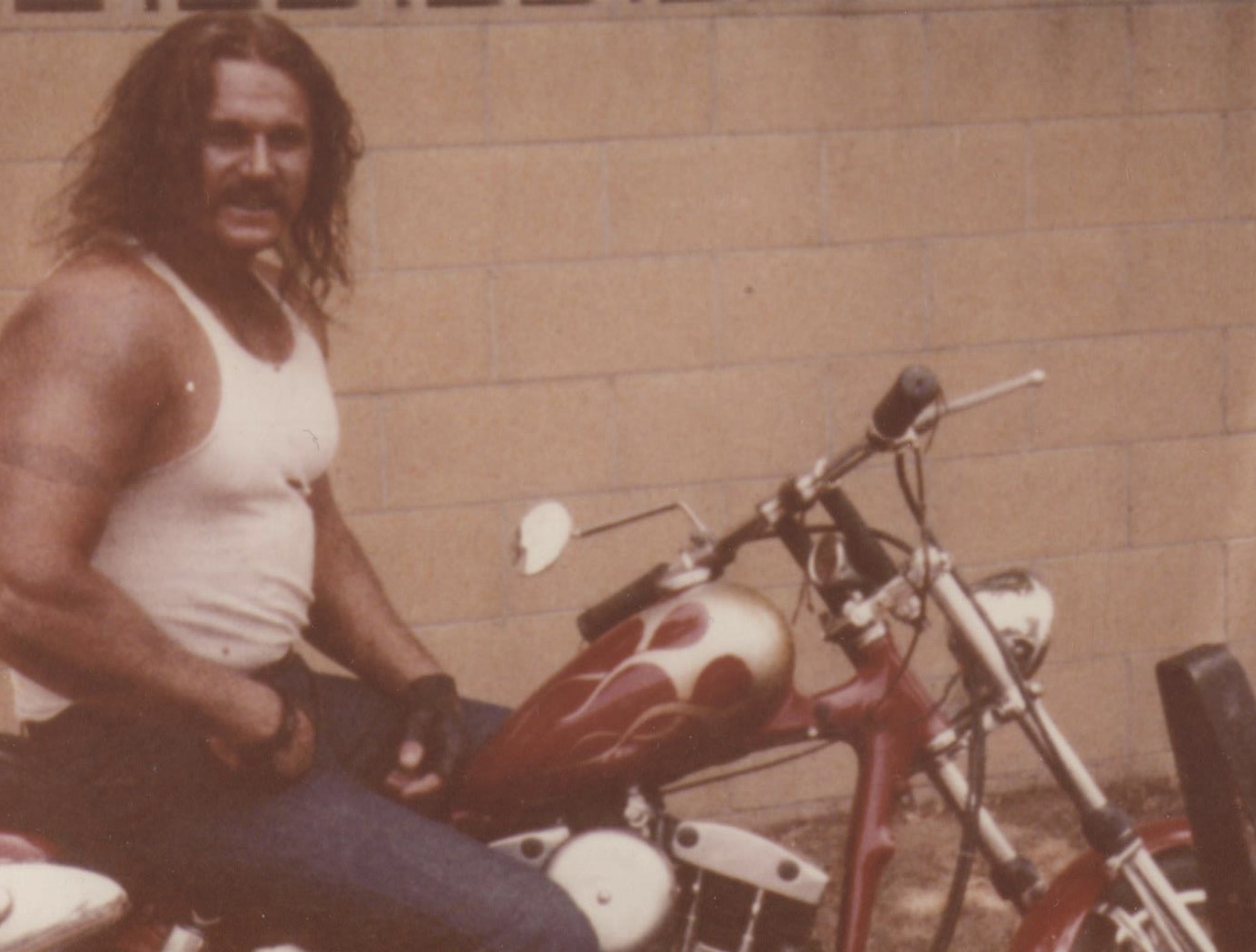
Film and Television
RBMA: So let’s move over to film and Sons of Anarchy. Um, how’d that get started? Is that your first time in a film?
RC: The first time I ever was in a film was 1981, in Sturgis. I got hired by a production company in LA and there was… it was called [The] Devil’s Gambit. It was a movie about an investigation into the killing of a geologist in South Dakota. He was checking out natural gas deposits for an oil company that had a lease on some property. Well, the other competing company wanted to take the land.
So they kill the geologist. Investigators get sent into Sturgis because that’s where it happened. My role in that one was as the president of a motorcycle club that was hired by the bad guys to block the investigators from finding anything.
So, at that time, Sturgis was the biggest run in the United States, but there were only 13,000 people there, but it was still wall-to-wall people like it is now, just in a tighter area. […] And it was a fun time, you know? We got to do the film while we were there, we hung out, rode, and had a great time.
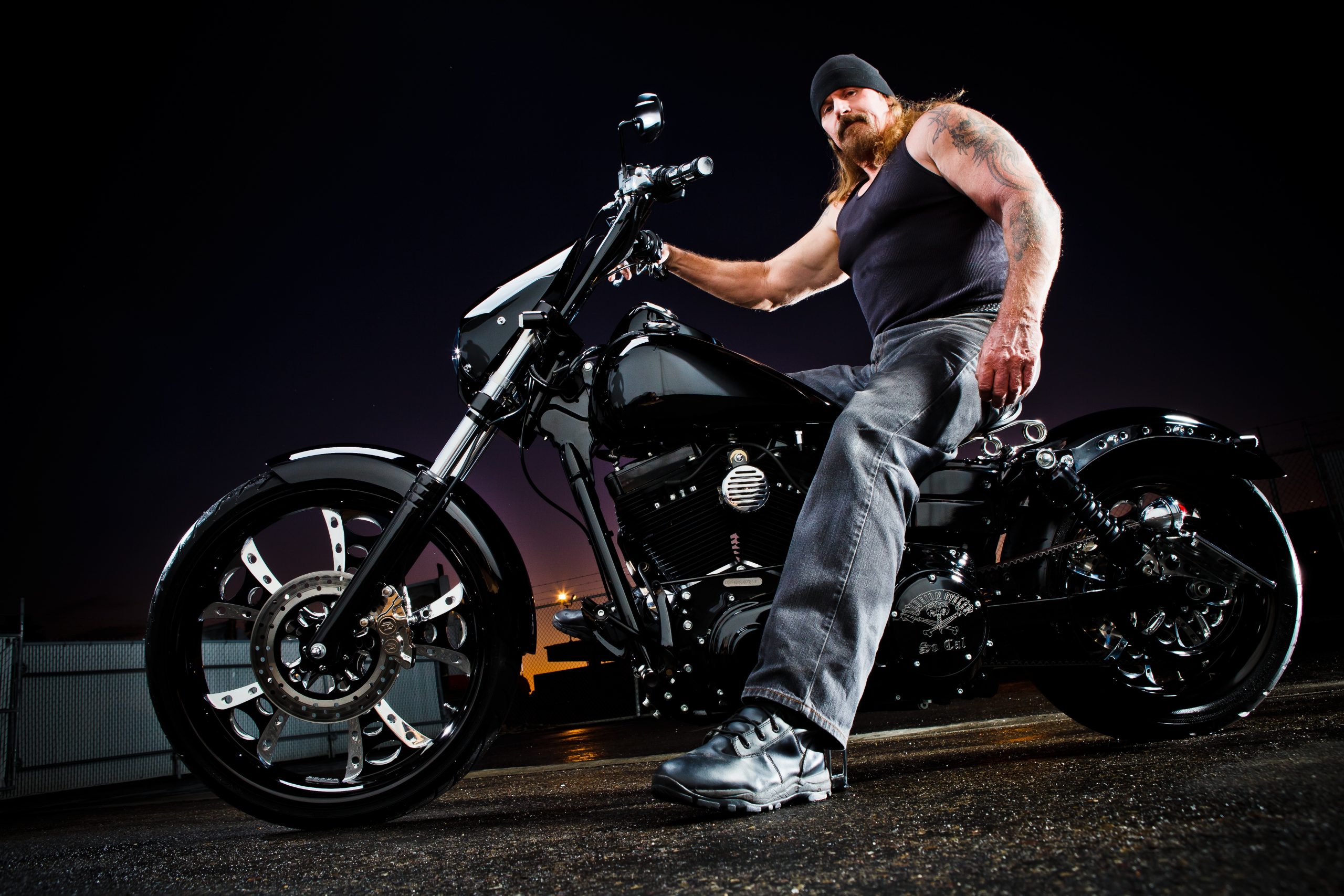
RBMA: And what about Sons of Anarchy? That started from you building a bike through your shop?
RC: Yeah. I built a bike for FX to donate to the Wounded Warriors charity. And then Kurt [Sutter], who created the show, wanted a bike, so I built a bike for him. Then Charlie [Hunman, who played Jax Teller] came down. I was doing an event at the shop and they came down and hung out for a while, towards the end of season one, I think.
So Kurt says, ‘hey, man, you want to come on the show?’ And I said, ‘you know, I really appreciate the offer, but I gotta say, I’m really into my music right now. So, you got any openings for music on the show?’ He said, ‘well, let me hook you up with Bob Thiele, the music director, and we’ll see what we got.’

Eventually Rusty would trade weapons, moving from the SOA soundtrack to its cast.
And so they put about three of my songs from my band [Attika 7] on the show over, I don’t know, the next season or two. Around season five I did some reality TV stuff and, you know, it actually made kind of decent money… I got a taste for it. So I got back hold of Kurt and I said, ‘hey if that offer is still open, keep me in mind.’ He said, ‘you know what? I’ve got something that that would work out perfectly for you.’
They called me into Wendy O’Brien’s casting to audition for a part. […] I went down there and I read for the part on tape, and they called me in to start shooting… I think it was, like a day or two later. […] And it was a great thing, you know, I had a lot of fun and it was paid well, [and was] a different type of work than what I’d been doing for a long time.

Watching the Scene Evolve
RBMA: So, as an Orange County native myself, I’m wondering, what are your thoughts on just the area? Like the scene in general? Not just motorcycling. Specifically, like, how have you seen things change over the decades?
RC: Well, as far as the motorcycle world… you know, back in the seventies, when people rode choppers, they were a really small minority of the population. I mean, it still would be considered small. Motorcycling is never gonna be a majority, but the average person wasn’t even into Harley-Davidson’s and that whole thing. And then in the eighties, people started really buying Harley-Davidson.
That’s when, after 1984, it started blowing up, and so you ended up with… people were calling them RUB’s and yuppies and everything. You know, they’ve been around for a while, and I noticed that it spread out the… the attention with law enforcement. At least, you know, we were getting ticketed every time we went anywhere, and there were only a few of us taking the beating. Now it’s spread out with all these other people. So…
RBMA: Wow that’s something I never even thought of…
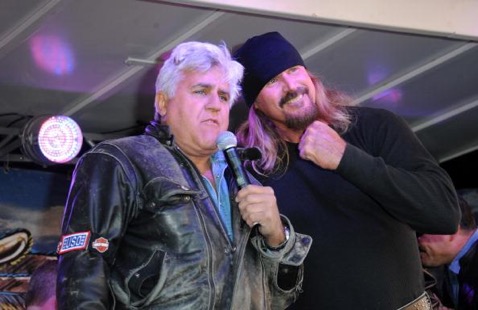
RC: Yeah, Yeah. I mean, there was a while there where it was pretty bad. It hasn’t been like that for me in a while, but, yeah, man, I remember the DMV… they had me go in [for] a hearing. I had to do that a couple of times where they were taking my license away for all my tickets.
So I’m in there and I got one of these guys talking to me from the DMV and he’s reading the license plates on every ticket that I got. He says ‘well, you’ve got a commercial license, for driving trucks. I only see one ticket here with that, and I see all these others are motorcycle tickets.’ […] He says, ‘why are you getting all these tickets on motorcycles?’
I said, ‘it’s like having a target on my back. I mean, the police see me and, you know, they figure if they pull me over they’re gonna get me on something… if nothing else, at least an exhaust ticket. And so that’s what’s happening all the time, you know?’ And the guy says, ‘you know, I’m not gonna suspend your license this time. We’re gonna put you on probation.’ They did that twice because I had so many tickets.
RBMA: That’s cool. There was actually a soul somewhere in the DMV [laughs].
RC: Oh, yeah, they were being fair.

RBMA: Oh, I nearly forgot about how you opened and managed a rehab center. I found [while researching this story] that you did it, but I couldn’t find any real stories about it. I was kind of interested if that was something you wanted to talk about. It seemed…
RC: Yeah. There really wasn’t any press on that. Um, I did that from… 1991 ‘till about 1995. I had two treatment centers: one in Laguna Beach and, uh, one in Fontana. And, we were the only as far as I know… we were the only union employee treatment centers around this area, and we handled a lot of the Teamsters. That’s all the people that worked for me, were Teamsters union.
And, so we have, like, [grocery store chains] Lucky’s, Vons, Albertsons, Ralph’s. You know, all their employees, alcohol and drug problems would come through there, and other people […]. We had what we called scholarship beds, where we would give away a few beds, every month, to people that couldn’t afford treatment. We did outpatient. And we did inpatient work [too].
We did detox, so we had, at each facility, there was a doctor contracted, that would do all the medical detox. They would come in– they didn’t keep their office in-house– they would come in and do the physicals and prescriptions and oversee the patients that were there, and it worked out. I mean, it was a great business, and it helped a lot of people.

I really liked it. The reason I got out of it was that, when [Bill] Clinton came into office, he gave Hillary the reins over healthcare, and she wanted to nationalize healthcare. And she was threatening all the insurance companies with nationalization, and they were freaking out. And so what they were doing is they were moving money offshore, and they were doing everything they could to save what they had, in case this thing actually happened. And one of the victims of that was drug and alcohol treatment.
Coverage from insurance companies up to that point– chemical dependency was classified as a disease, as it is now. But for a time period– a short time period there– they moved it out of that classification, so they didn’t have to cover it. And what happened is both of my treatment centers had high overhead and they were geared for inpatient and detox, and it was expensive to keep them in operation. And we were losing our detox, our inpatient. It just didn’t make sense to continue like that. So I chose to close down one of them. And then I closed down the other one […]. I wish I would have stuck it out because it recovered.
I didn’t see any end in sight to the way they were handling things, but it did recover. And it actually bounced back way stronger. But at the time, that wasn’t happening. It was on the downward turn at that time. If you don’t know when it’s gonna end, then you’re just looking at what are you gonna do to stop the bleeding?
“…you’re just looking at what are you gonna do to stop the bleeding?”

RBMA: Okay one more question: profiling. Motorcyclists get profiled for special attention by police departments under the idea of public safety. It’s gotten a lot more attention in the past few years but it’s been a thing longer than I’ve been alive. Do you think it’s a bigger problem nowadays or less of a problem compared to, like, the seventies, eighties, nineties?
RC: Man, it’s hard to say. Like I said before, there were a lot fewer people back in those times, in the seventies and eighties, and they were getting hit hard all the time. I think that it didn’t slow down– it just got spread out a little bit more. And at this time right now, I can’t tell you. I know there’s been a massive push back, with people lobbying in different states… pushing to get legislation passed, which has been successful in some areas. And I’m glad about that because there’s been a lot of people that have been victimized by profiling.
The Road Ahead
This interview ranged over many other topics, but so much of it had to be left out. Rusty’s need to push the boundaries of high-performance has gotten him into electric power along with internal combustion, and Rusty had some interesting thoughts on the future of electric motorcycles, which we could only touch on in the space here.
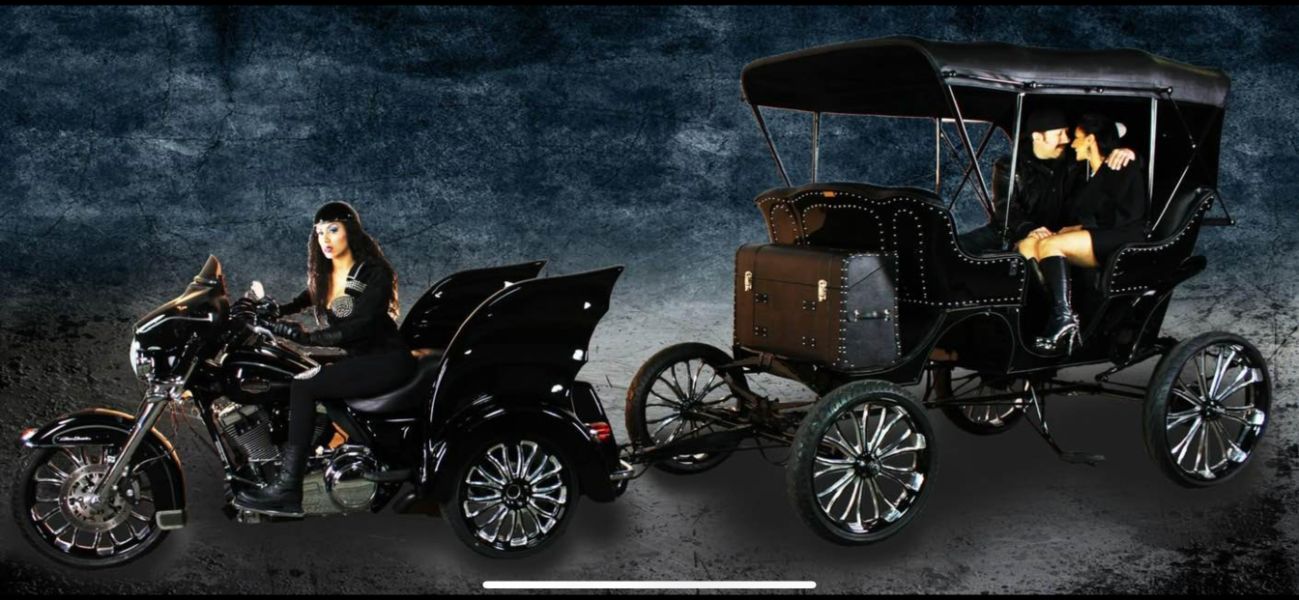
One of Rusty’s many wild custom builds was a series of carriages to help reduce the need for horses in urban traffic patterns.
There was also no room to talk about overzealous prosecutors and legal gray areas earning Rusty a stint in prison. He used that time to rekindle his love of music though, allowing him to leave prison with a list of new songs that would eventually fill the catalog of his band, Attika 7. While the band is currently on hiatus, he is still playing, moving back to his roots in blues music for a change of pace.
We also talked about future projects in film and television but didn’t have time to talk about him reprising his role as Rane Quinn in several episodes of the SOA spin-off, Mayans MC. But Rusty’s life, like all of our lives, is a work in progress. Knowing when to seize opportunity seems to be a strong suit of his, so we recommend keeping an eye on him through his Facebook page and Instagram page. He is definitely living the best version of his life, and it’s great to be along for the ride.
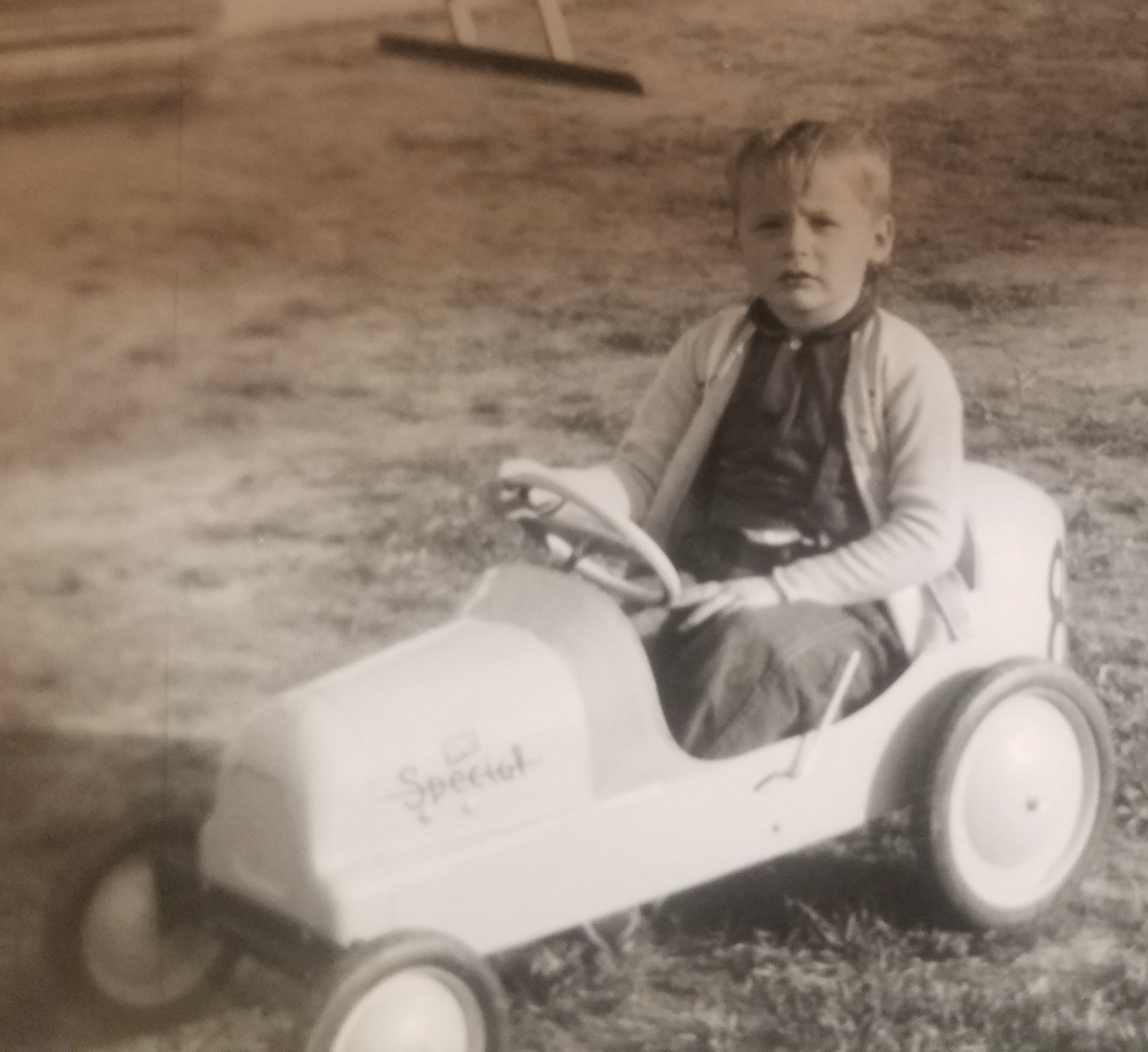

Written by; Johnny Killmore
